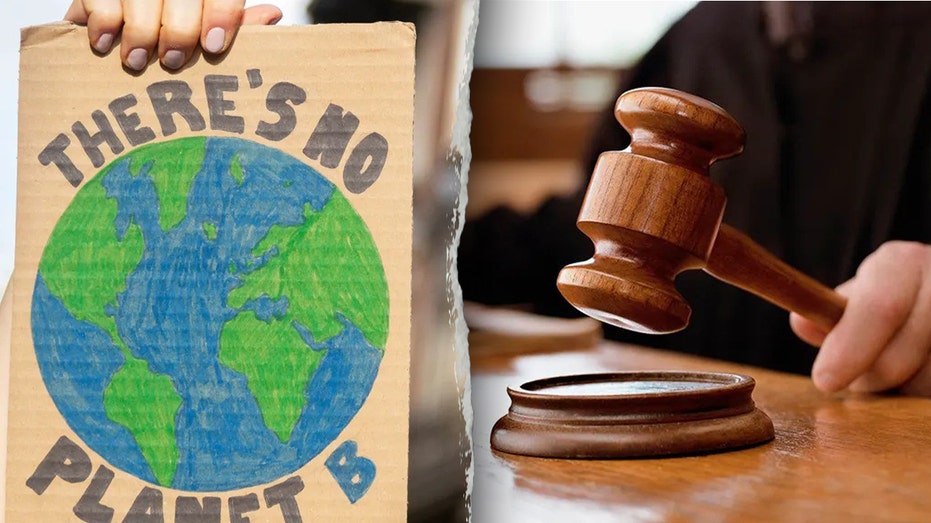Experts Warn Blue-State Climate Lawfare Could Harm US Energy Consumers: 'Huge Effect'
Fossil fuel advocates warn activists' lawsuits across the U.S. are shaping national and global climate policies.

Climate change advocates are increasingly employing legal strategies in small jurisdictions across the United States to pursue their environmental objectives, a tactic that experts warn could have far-reaching consequences for the national oil industry and beyond. These lawsuits, often filed at the county or district level, seek significant damages from fossil fuel companies for their alleged role in climate change, and could potentially set precedents that reshape the industry’s future.
Amid this legal surge, former President Donald Trump has moved to shield the domestic energy sector by unleashing a broad energy agenda. This includes taking preemptive legal action in several states with the aim of preventing local governments from suing fossil fuel producers over climate-related damages. However, despite federal intervention, Democratic-led jurisdictions in states like Oregon, Colorado, and Washington continue to press forward with litigation against energy companies, raising concerns about the wider implications for American industry.
Consumer advocate O.H. Skinner, who serves as executive director at Alliance for Consumers, expressed alarm over the potential impact of these cases. “If a court in Oregon declares climate change to be a public nuisance and orders the nation’s top energy companies to cease those activities, it could unlock billions of dollars for climate initiatives and severely restrict operations such as drilling, producing, and refining nationwide,” Skinner said. He emphasized that these lawsuits, while originating in relatively “tiny jurisdictions,” seek remedies with national scope—threatening not only to upend the oil industry but also to set legal precedents that could affect the automobile sector and other critical parts of the economy.
A prominent example is unfolding in Multnomah County, Oregon, where authorities are seeking $52 billion from oil companies on climate grounds. Skinner warned that if multiple counties were to win similar verdicts—each demanding tens of billions of dollars—the cumulative effect could be an existential threat to the U.S. energy sector. “What’s their real goal? Bankrupting the energy industry across the whole country,” Skinner asserted, suggesting that a series of successful claims could have a “huge effect” on the national economy.
The Trump administration’s response has included an executive order designed to limit state and local civil actions against energy producers. The order, signed in April, directed the Justice Department to challenge state regulations and lawsuits seen as obstacles to domestic energy production. Already, federal attorneys have initiated lawsuits aimed at blocking efforts in New York, Vermont, Michigan, and Hawaii, where state leaders are pursuing legal claims against fossil fuel companies for climate damages.
Yet, advocates for aggressive climate action argue these steps are necessary because federal legislative solutions have stalled. Groups like Our Children’s Trust are actively litigating on behalf of young plaintiffs, targeting government policies and executive directives that favor fossil fuel expansion. Their spokesperson pushed back against the notion that presidents can force states to rely on fossil fuels, asserting that “wind and solar are the cleaner, cheaper, and healthier option.” The group insists that clean energy is rapidly expanding, citing its status as the fastest-growing energy sector in Texas last year, and touting its potential to reduce energy bills and improve public health, particularly for children.
At stake in this legal showdown is not just the profitability of oil companies, but potentially the entire framework of how the U.S. addresses energy, environmental health, and economic growth. With both sides pursuing high-stakes courtroom battles, the outcome could influence the nation’s trajectory on climate policy, energy prices, and public health for years to come.




